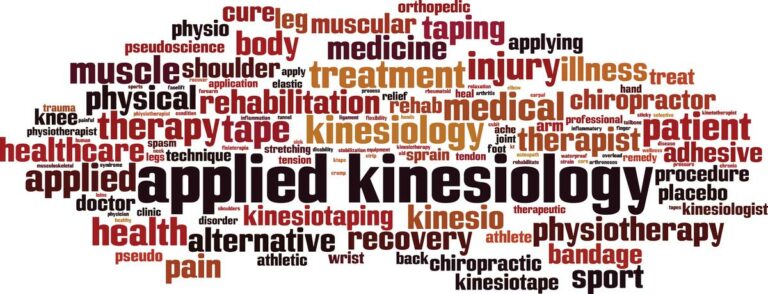Origins and history of Kinesiology

“Kinesiology encompasses holistic health disciplines which use the gentle art of muscle monitoring to access information about a person’s well-being. It combines Western techniques and Eastern wisdom to promote physical, emotional, mental and spiritual health. Kinesiology identifies the elements which inhibit the body’s natural internal energies and accesses the life enhancing potential within the individual.”
Australian Kinesiology Association 1999, (amended in 2006)
What is Kinesiology?
It aims to optimise the body's natural capacity for self-healing by employing therapies and methods that monitor and enhance energy flow within the muscles and organs. This comprehensive approach to health fosters overall well-being, leading to both physical and mental advantages. As a rapidly expanding sector of alternative medicine, more and more individuals are recognizing and embracing the benefits that kinesiology offers.
Kinesiology utilises non-invasive techniques rooted in ancient medicinal practices like acupressure and massage. Its main objective is to establish balance within the body, thereby promoting overall health and well-being. A kinesiologist will carefully observe your muscles to identify imbalances, physical discomfort, and emotional stress, which may manifest as depression, anxiety, poor posture, or digestive issues. Kinesiology adopts a holistic approach to healthcare, incorporating various natural health modalities, including acupressure, neuro-vascular and neuro-lymphatic systems, meridian energy flow, counseling, body psychology, brain integration, nutrition, homeopathy, chakra healing, structural balancing (including TMJ), color and sound therapy, as well as essences and essential oils. Each kinesiology session is personalized to address the individual's specific needs and concerns.
A kinesiology balance offers several advantages, such as:
- Experience relief, release, and support for stress, anxiety, and depression
- Alleviate pain and tension, targeting issues like headaches, migraines, jaw, back, and neck discomfort
- Enhance memory, and coordination capabilities
- Facilitate healing from past and present traumas.
- Boost energy levels and overall vitality
- Enjoy improved sleep quality.
- Cultivate greater confidence and enhanced self-esteem
- Find a sense of direction and harmony in your life
What Kinesiology can help with?
- Fatigue
- Sleep Problems
- Insomnia
- Chronic Fatigue Syndrome
- Anorexia
- Bulimia
- Low energy
- Fertility
- Confidence & Self Esteem
- Concentration & Memory
- Balance & Coordination
- Hormonal Imbalances
- Stress
- Anxiety
- Depression
- Post Natal Depression
- Grief & Loss
- Headaches
- Migraines
- Pain, Sports Injuries
- Excess Weight
- Digestive Discomfort (IBS)
- Addictions
- Hay Fever
Kinesiology for kids
Every parent hopes for their child to experience good health, confidence, happiness, and enthusiasm for life. As a parent, you may sometimes sense that something is amiss with your child, but they may be unable or hesitant to communicate the reasons for their feelings. They might exhibit signs of anxiety, fear, anger, withdrawal, or even face ongoing physical health problems without any apparent cause.
Kinesiology serves as a distinct tool to discover the root cause of these issues, providing children with a safe and secure environment to release and express their emotions.
Kinesiology can help your child with:
- Easing and handling anxiety, depression, and fear
- Achieving uninterrupted night sleep in their bed
- Building confidence and self-esteem, embracing their individuality
- Letting go of and managing frustration and anger
- Acquiring straightforward techniques to manage emotions
- Enhancing coordination and balance
- Assisting with memory and learning challenges
- Releasing limiting beliefs that hinder their goals
- Aiding digestion and gut health, alleviating tummy aches.
